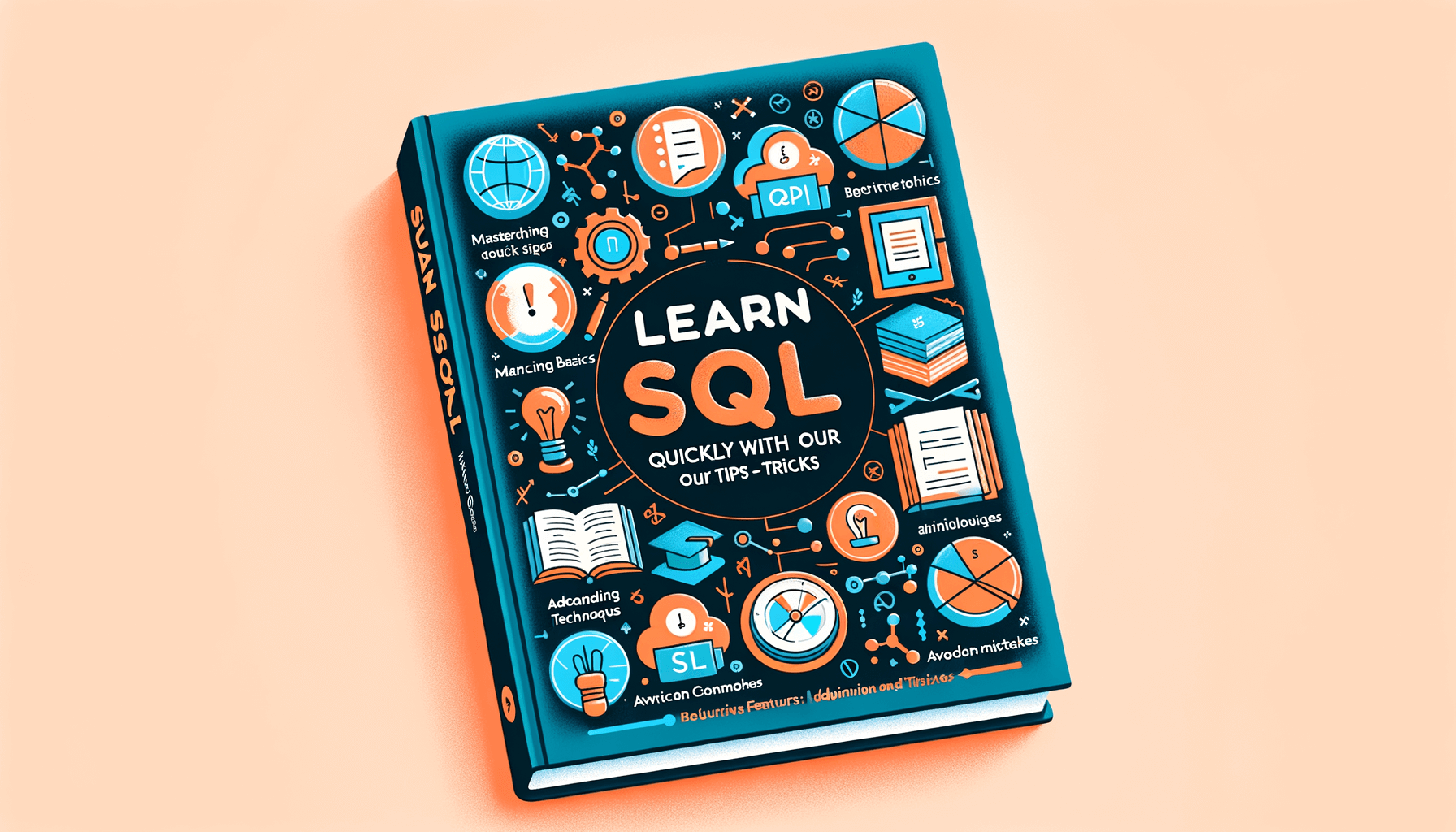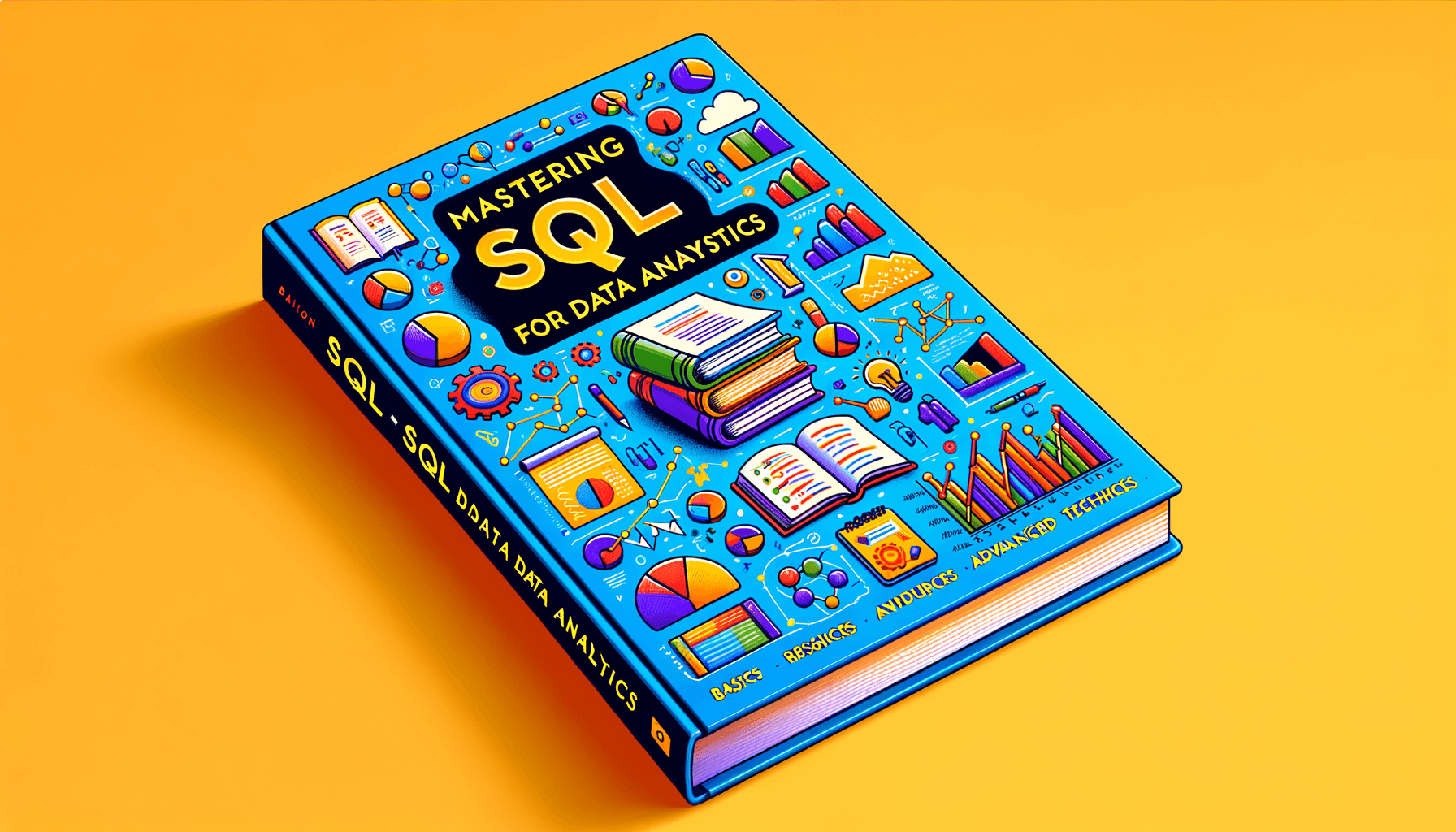A big variety of articles and resources

How Can I Learn SQL Fast? Tips and Tricks for Speedy Mastery
 Sia Author and Instructor
Learn SQL
Sia Author and Instructor
Learn SQL
8 minute read
Learning SQL quickly can open up many opportunities, whether you're looking to boost your career or handle data more effectively. SQL, or Structured Query Language, is the standard language for managing and manipulating databases. With the right strategies and resources, you can master SQL in no time.
Key Takeaways
- Start with the basics to build a strong foundation in SQL.
- Use online tutorials and resources to learn faster.
- Practice regularly by working on real SQL problems.
- Join communities to get help and share knowledge.
- Keep challenging yourself with advanced SQL techniques.
Understanding the Basics of SQL
SQL, short for Structured Query Language, is a fundamental tool in managing databases. Learning SQL involves grasping core ideas and terms, as well as setting up the necessary environment. It's crucial to understand these basics to work effectively with databases.
Effective Learning Strategies for SQL
Utilizing Online Resources and Tutorials
To fit data & SQL skills into your busy life, consider using micro-courses. These are perfect for beginners and allow you to learn at your own pace. You can login or sign up to start learning. Online tutorials and video lessons are also great ways to get started quickly.
Engaging in Hands-On Practice
The best way to learn SQL is by doing. Set up a practice database and start writing queries. Try to solve real-world problems or follow along with exercises from online courses. This hands-on approach helps you understand concepts better and makes learning more fun.
Joining SQL Communities and Forums
Being part of a community can speed up your learning. Join SQL forums and online groups where you can ask questions and share knowledge. Engaging with others who are also learning or are experts in SQL can provide valuable insights and tips.
Learning SQL is a journey. The more you practice and engage with the community, the faster you'll master it.
Advanced Techniques to Accelerate SQL Learning
Exploring Complex Queries and Functions
To truly master SQL, we need to dive into complex queries and functions. These advanced techniques allow us to manipulate and retrieve data in more sophisticated ways. Understanding subqueries, joins, and window functions can significantly enhance our SQL skills. By practicing these, we can handle more challenging data tasks with ease.
Optimizing SQL Performance
Optimizing SQL performance is crucial for efficient data management. We should focus on indexing, query optimization, and understanding execution plans. These strategies help in speeding up query processing and improving overall database performance. Here are some key points to consider:
- Use indexes wisely to speed up data retrieval.
- Avoid using SELECT * in queries; specify only the columns you need.
- Regularly update statistics to help the database engine make better decisions.
Leveraging Advanced SQL Tools
There are several advanced SQL tools available that can aid in our learning and productivity. Tools like SQL Profiler, execution plan analyzers, and database tuning advisors can provide insights into query performance and suggest improvements. Utilizing these tools can help us identify bottlenecks and optimize our SQL code effectively.
By exploring these advanced techniques, we can accelerate our SQL learning and become more proficient in handling complex data tasks.
Common Mistakes and How to Avoid Them
Overlooking Data Types and Structures
One common mistake is not paying attention to data types and structures. Choosing the wrong data type can lead to inefficient queries and storage issues. Always ensure you understand the data you are working with and select the appropriate types.
Neglecting Query Optimization
Another frequent error is neglecting to optimize queries. Poorly written queries can slow down your database performance. Use indexing and other optimization techniques to keep your queries running smoothly.
Ignoring Best Practices in SQL Coding
Ignoring best practices in SQL coding can lead to hard-to-maintain code and errors. Follow coding standards and guidelines to write clean, efficient SQL code. This will make your work easier to understand and maintain in the long run.
Remember, mastering SQL involves not just learning the syntax but also understanding how to use it effectively. Avoiding these common mistakes will help you become proficient faster.
Assessing Your SQL Proficiency
Taking Online Quizzes and Tests
To gauge our SQL skills, we can start with online quizzes and tests. These tools help us identify our strengths and areas needing improvement. Regular testing ensures we stay sharp and up-to-date with our knowledge.
Participating in SQL Projects
Working on real-world SQL projects is another excellent way to assess our proficiency. By tackling actual problems, we can see how well we apply what we've learned. This hands-on experience is invaluable for solidifying our understanding.
Seeking Feedback from Peers and Mentors
Feedback from peers and mentors is crucial for growth. They can provide insights we might miss and suggest ways to improve. Engaging with others helps us see different perspectives and refine our skills.
Consistent practice and feedback are key to mastering SQL. By regularly testing ourselves, working on projects, and seeking feedback, we can ensure continuous improvement.
Resources for Continued SQL Mastery
Recommended Books and Publications
To deepen our understanding of SQL, we should explore some highly regarded books and publications. Reading well-reviewed books can provide us with in-depth knowledge and practical examples. Some popular titles include "SQL for Dummies," "Learning SQL," and "SQL in 10 Minutes, Sams Teach Yourself." These books cover a range of topics from basic to advanced levels, making them suitable for learners at any stage.
Online Courses and Certifications
Enrolling in online courses is another effective way to master SQL. Platforms like Coursera, Udemy, and edX offer a variety of courses that cater to different skill levels. Many of these courses also provide certifications upon completion, which can be a valuable addition to our resumes. We should look for courses that include hands-on projects and real-world scenarios to enhance our learning experience.
SQL Conferences and Workshops
Attending SQL conferences and workshops can be incredibly beneficial for our learning journey. These events often feature expert speakers, interactive sessions, and networking opportunities. By participating in these events, we can stay updated on the latest trends and best practices in the SQL world. Some notable conferences include SQL PASS Summit, SQLBits, and Data Summit. Workshops, on the other hand, offer a more hands-on approach, allowing us to practice and refine our skills in a collaborative environment.
Continuous learning is key to mastering SQL. By leveraging these resources, we can stay ahead in our SQL journey and achieve our learning goals.
Looking to master SQL? Our website offers a variety of courses to help you improve your skills. Whether you're a beginner or looking to advance, we have something for everyone. Visit us today to explore our course catalog and start your journey to becoming a SQL expert!
Conclusion
Learning SQL quickly is possible with the right approach and resources. By focusing on the basics, practicing regularly, and using online tools and communities, you can master SQL in no time. Remember to break down complex concepts into smaller, manageable parts and to apply what you learn through hands-on projects. With dedication and the right mindset, you can become proficient in SQL and use it to unlock new opportunities in data management and analysis.
Frequently Asked Questions
What is SQL and why is it important?
SQL stands for Structured Query Language. It's used to talk to databases. With SQL, you can get, add, change, and delete data. It's important because many companies use databases to store information.
How can I start learning SQL quickly?
Begin with online tutorials and videos. These resources often explain things step-by-step. Practice by writing your own SQL queries. The more you practice, the better you'll get.
What are some good resources for learning SQL?
There are many resources available online, like free courses, YouTube videos, and websites dedicated to SQL. Books and online forums can also be helpful.
How important is hands-on practice in learning SQL?
Hands-on practice is very important. Just reading about SQL won't make you good at it. You need to write your own queries and solve problems to really understand how it works.
What are common mistakes beginners make when learning SQL?
Beginners often forget to pay attention to data types and structures. They might also neglect to optimize their queries, which can make them run slowly.
How can I check my progress in learning SQL?
You can take online quizzes and tests to see how much you've learned. Working on real SQL projects and getting feedback from others can also help you measure your progress.
Related Articles

Can I learn SQL fast enough to get a job next week using it?
12 minute read

Discover the Best Website to Learn SQL in 2023
9 minute read





